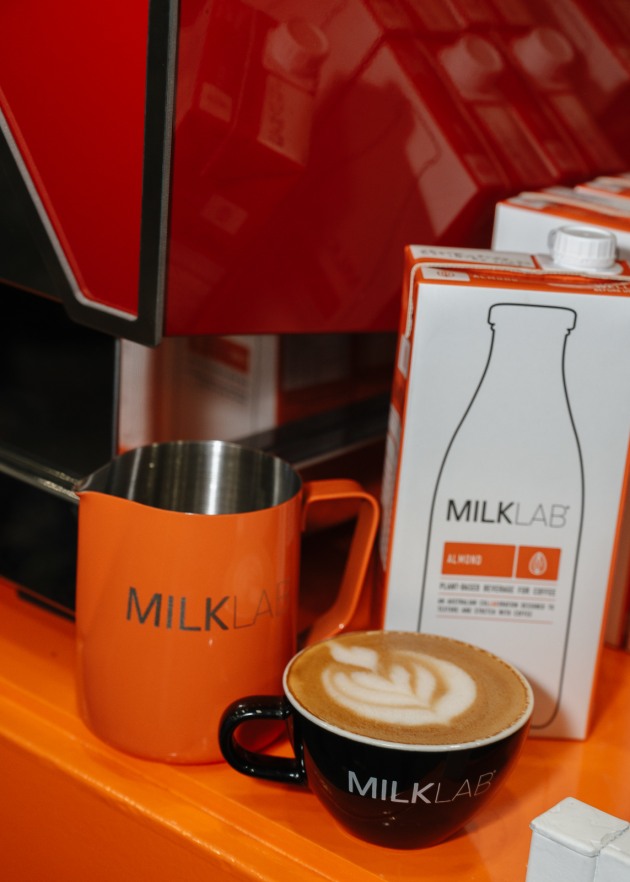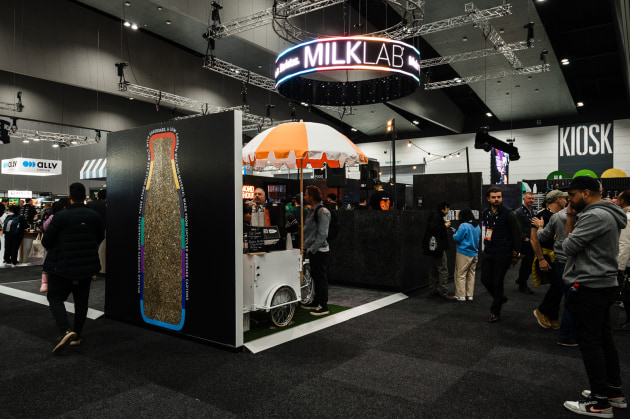Milklab has partnered with carton recycling operation saveBoard to transform recycled waste, including long-life milk cartons, into low-carbon building materials to be used as the walls of Milklab Lane at the 2024 Melbourne International Coffee Expo, to be held on 12-14 May.
The Milklab Lane stand will be made with sustainable materials, including saveBoard – a low-carbon building material made from hard-to-recycle liquid paper board used in long-life milk and juice cartons.
The saveBoard operation is a partnership between carton manufacturers TetraPak and SIG Combibloc, who support the recycling operation.
Milklab says it worked closely with saveBoard to create the walls of Milklab Lane by integrating milk carton packaging waste into the board products.
Natalie Latimore, Milklab’s marketing manager, said Milklab is a brand grounded in collaboration and sustainability is a key priority.
“Sustainability is important to Milklab, and we are committed to implementing sustainable practices in our products, our processes and our packaging,” Latimore said.

“Baristas around Australia use the Milklab range of milks to satisfy the orders of coffee lovers every day. It’s great to know that we have a sustainable solution to recycle and reuse those cartons to make positive impact on the environment.
“We’re excited to partner with saveBoard to use recycled milk carton packaging for the build of Milklab Lane this year.
“We’re thrilled to be able to offer visitors to this year’s Expo an exciting and sustainable brand experience.”
The boards have no additives such as glues, chemicals and adhesives – the plastic in the packaging acts as the glue, and colour is created from the original consumer packaging.
According to Chris Collimore, saveBoard’s country manager, saveBoard is a true solution to problematic waste management and the company is proud to partner with Milklab to showcase its products.
“We divert hard-to-recycle packaging waste from landfill and turn it into an aesthetically pleasing, functional and commercially sustainable building product,” said Collimore.
“We then recycle that product again and again back into saveBOARD. Supporting saveBoard really is a circular solution to waste.”
saveBoard opened its new Warragamba beverage carton manufacturing facility last year in partnership with Tetra Pak, who are one of the paper suppliers used in the cartons for Milklab’s range of barista plant-based and dairy milks.
“We’re incredibly proud of the ongoing partnership between Tetra Pak and saveBoard, keeping valuable resources out of landfill, preserving our planet’s resources, and reducing waste to create sustainable building materials from used cartons for the local market,” explained Jaymie Pagdato, marketing director at Tetra Pak.
“Through this collaboration, we are not only creating value through the life cycle of every carton, we are also contributing to a low-carbon, circular economy.”
Each board saves 500 used beverage cartons from landfill. The saveBoard operation is capable of recycling four million kilograms of soft plastics and fibre every year at its facilities at Warragamba in Western Sydney and Hamilton in New Zealand.






